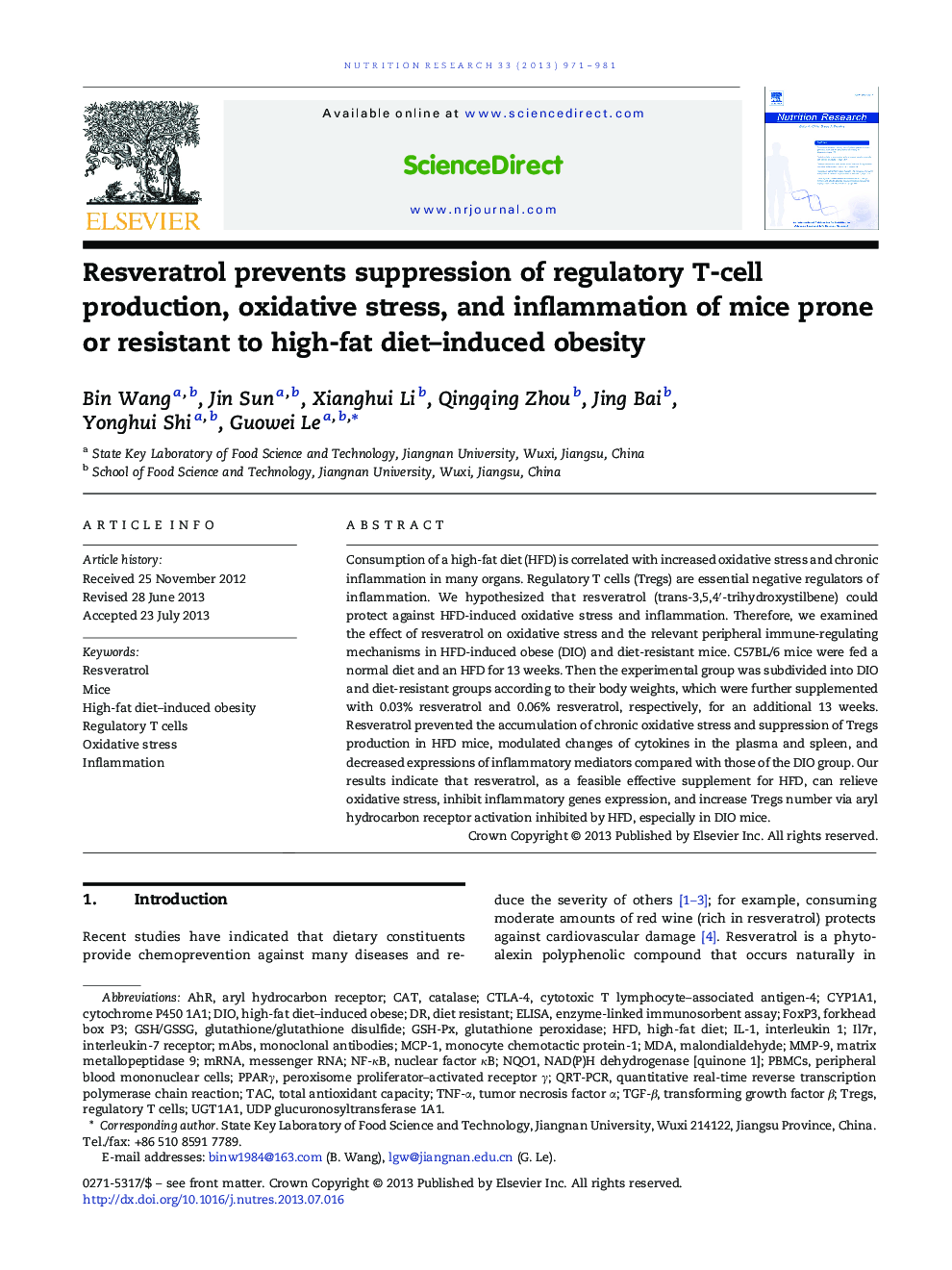| Article ID | Journal | Published Year | Pages | File Type |
|---|---|---|---|---|
| 2809100 | Nutrition Research | 2013 | 11 Pages |
Consumption of a high-fat diet (HFD) is correlated with increased oxidative stress and chronic inflammation in many organs. Regulatory T cells (Tregs) are essential negative regulators of inflammation. We hypothesized that resveratrol (trans-3,5,4′-trihydroxystilbene) could protect against HFD-induced oxidative stress and inflammation. Therefore, we examined the effect of resveratrol on oxidative stress and the relevant peripheral immune-regulating mechanisms in HFD-induced obese (DIO) and diet-resistant mice. C57BL/6 mice were fed a normal diet and an HFD for 13 weeks. Then the experimental group was subdivided into DIO and diet-resistant groups according to their body weights, which were further supplemented with 0.03% resveratrol and 0.06% resveratrol, respectively, for an additional 13 weeks. Resveratrol prevented the accumulation of chronic oxidative stress and suppression of Tregs production in HFD mice, modulated changes of cytokines in the plasma and spleen, and decreased expressions of inflammatory mediators compared with those of the DIO group. Our results indicate that resveratrol, as a feasible effective supplement for HFD, can relieve oxidative stress, inhibit inflammatory genes expression, and increase Tregs number via aryl hydrocarbon receptor activation inhibited by HFD, especially in DIO mice.
